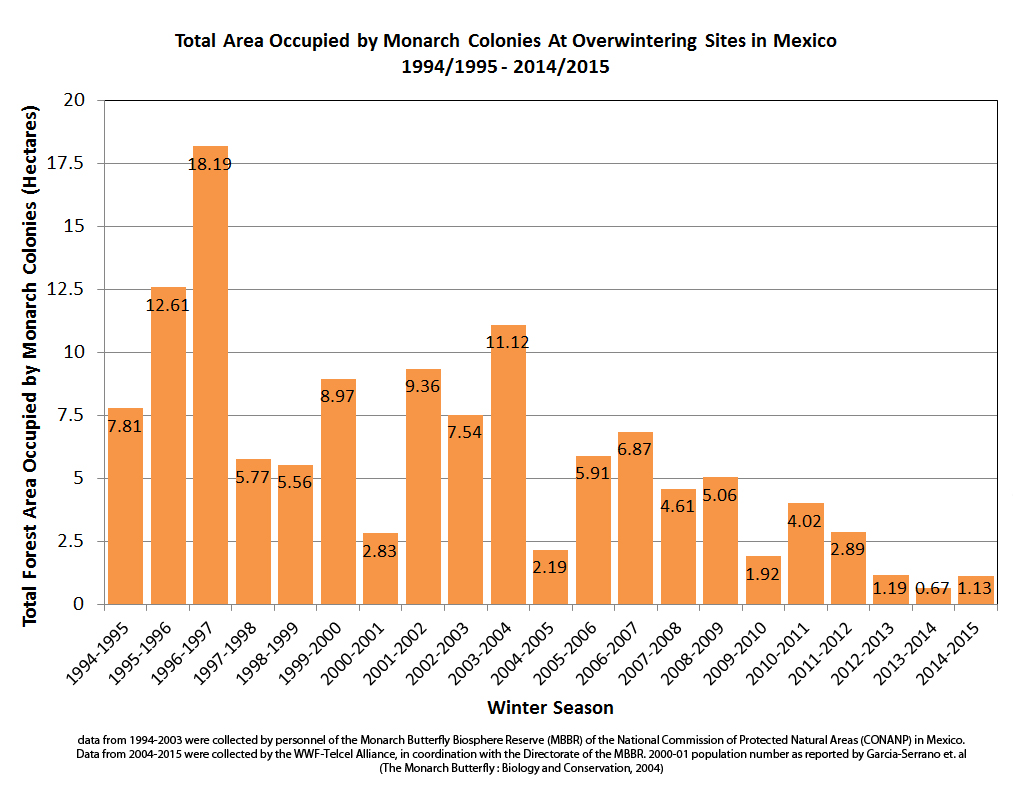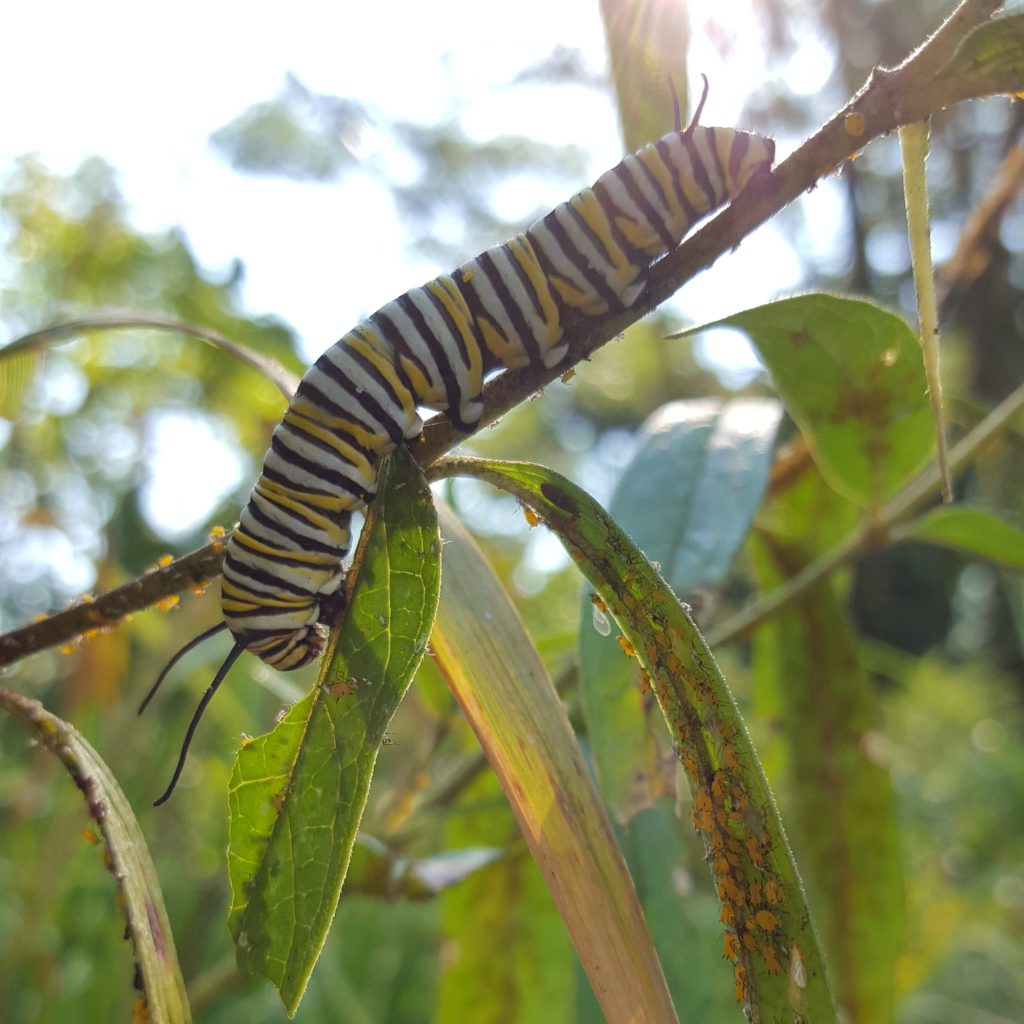Last September, I wrote an article on Monarch butterfly migration and noted that Monarch butterfly populations are in severe decline. In fact, the winter of 2013 recorded the lowest population of butterflies returning to Mexico ever with populations reduced by 90% over the last 25 years. So this year, as summer draws to a close and these incredible insects prepare for their amazing journey, I thought I would give you an update.
As the chart below shows, Monarch populations peaked in 1996 with an estimated population of 1 billion butterflies covering about 51.8 acres in their winter habitat in Mexico. Those numbers reached their lowest point in 2013 with about 33 million butterflies covering only 1.65 acres.
Thank goodness the summer of 2014 resulted in ideal weather for Monarch breeding and reproduction and populations rebounded slightly to 57 million butterflies.
The main causes of these declines are illegal logging in the Mexican forest where the Monarchs overwinter and habitat loss in the US. Because of this, it will take an international effort to save the Monarch butterfly. Thankfully, the Mexican government has cracked down on illegal logging, so now it is our turn.
According to the National Resources Defense Council, Monarch habitat loss in the US is largely due to our agricultural practices. Genetically modified (GMO) crops allow farmers to apply herbicides much more indiscriminately than in the past. This results in higher crop production, but much lower biodiversity. Farmers can now apply glyphosate, the active ingredient in Roundup, directly over crops eliminating virtually all weeds including milkweed. Since milkweed is the only plant that Monarch caterpillars can eat, there is simply not enough habitat to support them.
So if you are fascinated by Monarchs and are concerned about how human actions threaten them, and other species, you probably want to help.
According to the Xerces Society here are some things you can do:
- Plant native milkweed and nectar plants.
- Avoid using insecticides and herbicides.
- Support agriculture that is organic or free of Genetically Modified ingredients.
- Become a citizen scientist and contribute to research efforts to track the monarch population in its breeding and overwintering range at www.xerces.org
- Support the Xerces Society’s monarch conservation efforts.



